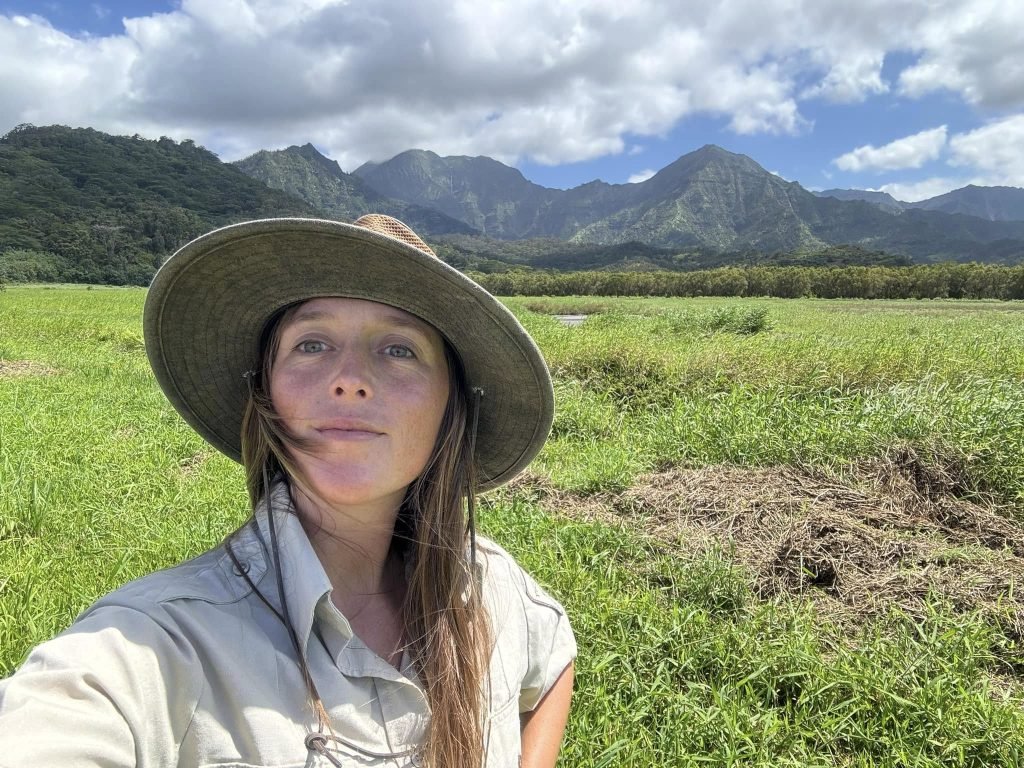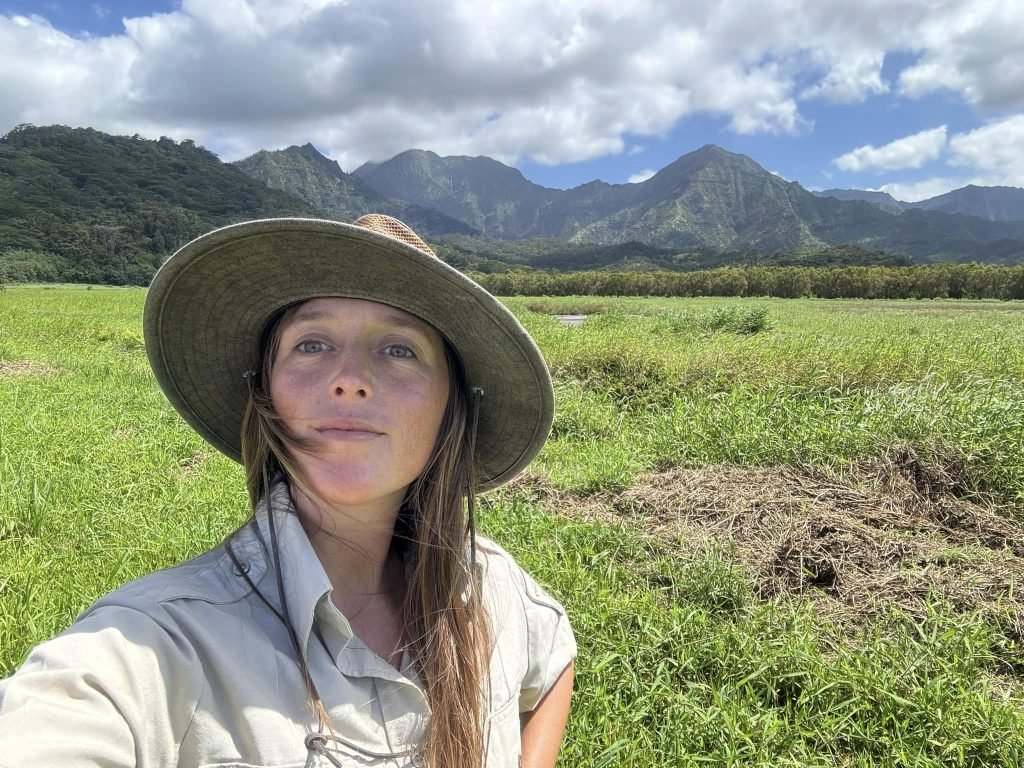
Biologist Bryn Webber is passionate about his work on saving native Hawaiian birds under attacks by disease-dispersing mosquitoes, predators and loss of habitats-and at risk of being eradicated-by Kauaʻi National Wildlife Refuge Complex.
“That was my dream job,” Webber said during an interview Thursday. “I still can’t believe I got it. And I can’t believe it was torn away from me. “
At. 8 On Valentine’s Day, webber had car problems and went to the store to pick up oil when she got a call to attend a team meeting planned with managers in Portland.
Her “heart just sank” and rightly. When she opened her e -mail and clicked to attend the meeting, Webber said it was a message from the leaders who thanked her and her team for their service but informed them that they would be terminated because they were trial time staff.
Webber and her three team members as well as long -standing complaint staff Steven Minamishin were among the thousands of federal workers on trial status across various agencies recently fired without warning from the Trump administration as part of its sweeping agenda to cut the government’s workstine and eliminate waste and fraud.
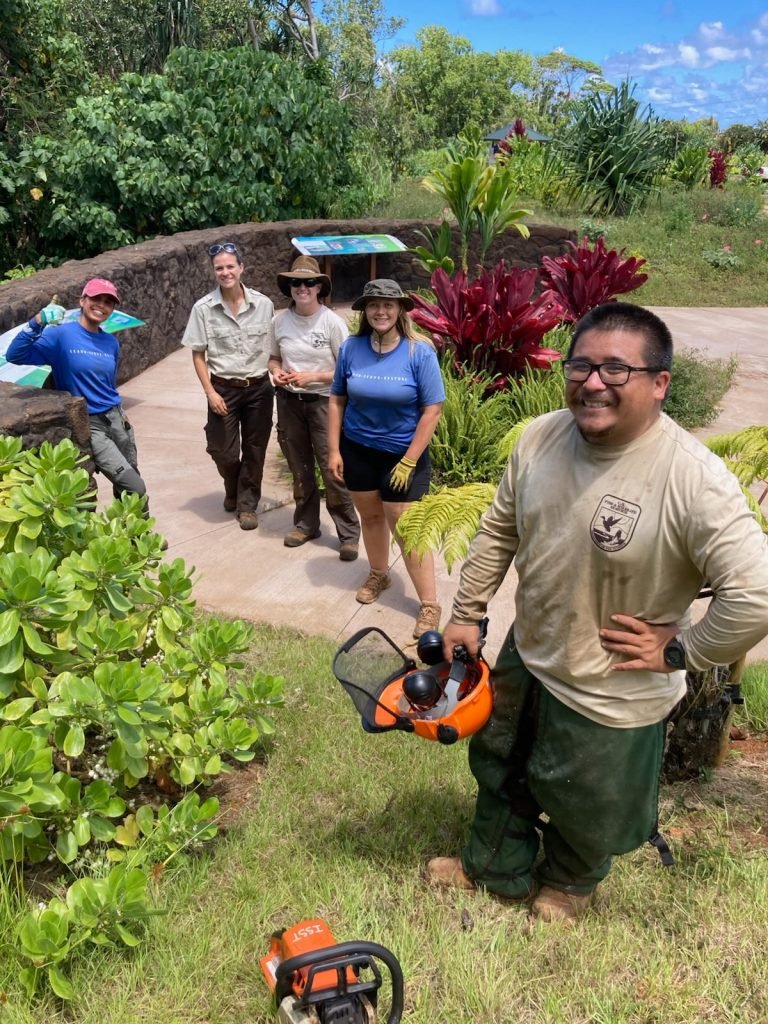
During trial, federal workers do not have the protection of civil service. And the trial time is not only for new hires, but can also be for long -time employees who were promoted to new positions, as was the case with 38 year old Minamishin.
Webber said Minamishin was one of these people who “worked humbly in the background” to ensure wetlands worked and water flowing for Taro Farms, among a long list of other responsibilities on the three refugees.
“He’s glued to be refined together,” Webber said.
E emails and phone calls to the US Fish and Fire Service, which administers Kaua’i National Wildlife Refuge Complex, was not answered.
The complex includes 1,400 hectares between three refugees. Hanalei and Hulē’ia National Wildlife Refuges were created in the early 1970s under the Endangered Species Act to regain endangered and endangered species, including four wetlands bird species and nēnē (Hawaiian Goose).
Kīlauea Point National Wildlife Refuge, established in 1985, is home to a number of native and wandering seabirds as well as Daniel K. Inouye Kīlauea Point Lighthouse.
The Refuge complex had been without a biologist for two years before the 33-year-old Webber was hired in May 2024.
“I’ve built up my whole life around this job,” Webber said. “I had no other dreams because I wanted to be in this job for a long time.”
Webber had earlier experience working on the refuge complex while completing her master’s degree in science from Oregon from 2019 to 2022. She studied Hawaii -water bird’s alae ‘Ula at the Kaua’i refugees and looked at its nests and the chicken survival.
But with most new federal jobs, and even in new jobs due to promotion, there is a probationary period that usually lasts a year and can be longer.
Webber published a copy of the E email she was sent from the Deputy Director of the US Fish and Wildlife Service with the subject line “Notice of decision to conclude competitive service agreement during the probationary period.”
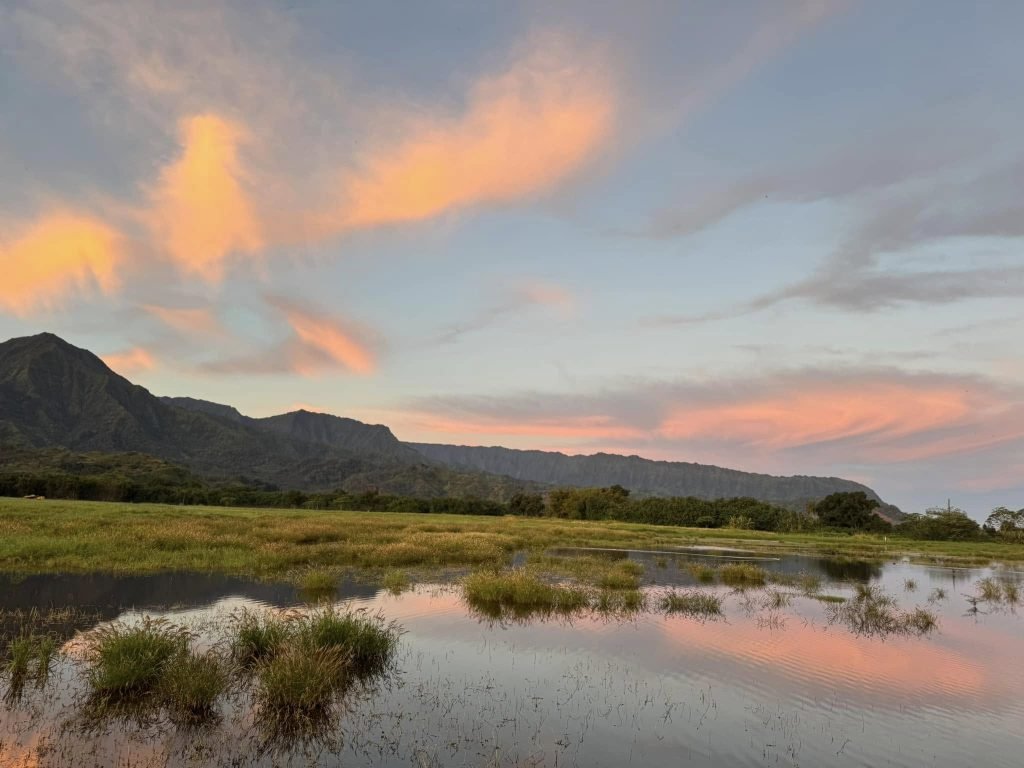
The e email said: “The department has determined your knowledge, skills and abilities does not meet the current needs of the department, and it is necessary and appropriate to complete during the probationary period your appointment for the American fish and wildlife service.”
Before this call, webber said her direct overall told her and the team that they couldn’t give them a heads up on anything, but didn’t think they would be released. Since this call, webber said she has not heard anything about severance pay or being able to apply for her position.
Webber has been passionate about working at Kauaʻi. After getting her degree, she worked a number of jobs, including as a mosquito coordinator for Kua’i Forest Birds.
By Kauaʻis 16 native Honeycreepers, 10 have been eradicated, and three are listed under the law of endangered species as threatened or threatened.
Last year, preservatives flew a helicopter to spread a harmless bacterium in native forests inhabited by almost elaborated honey creepers, like ‘Akikiki.
“I’ve seen ‘Akikiki be eradicated in front of my eyes,” Webber said.
She is still in shock and is concerned about the future of Kaua’is threatened species and protected countries.
Part of the webber’s job was to monitor the nest of native birds and predatory control. She also worked on submitting a 40-page application for a threatened and threatened species authorization that would give herself permission and her team to monitor disruptions to endangered plants and/or animals at Kaua’i.
Webber said the loss of staff will have devastating effects on the wild animals.
The American fishing and wildlife service is currently dealing with an aviary botulism outbreak in Hanalei affecting native birds.
Webber said birds can go from healthy to death within eight hours. This disease can also go unnoticed until it is too late.
Webber’s team has been successful in saving birds, they have found sick, but what is critical is to find the carcasses of birds that have died due to the outbreak.
At Kīlauea Point, the Agency installed a $ 2 million fence to keep predators out of refuge. Webber said the team had eradicated all rats and cats from the area, and the last project was to get the wild pigs out that ate the birds.
The fence itself must be maintained. There is a 10-foot cut on each side to keep branches and grass away from it. Branches can act as a bridge for more rats and cats to get back into the protected space.
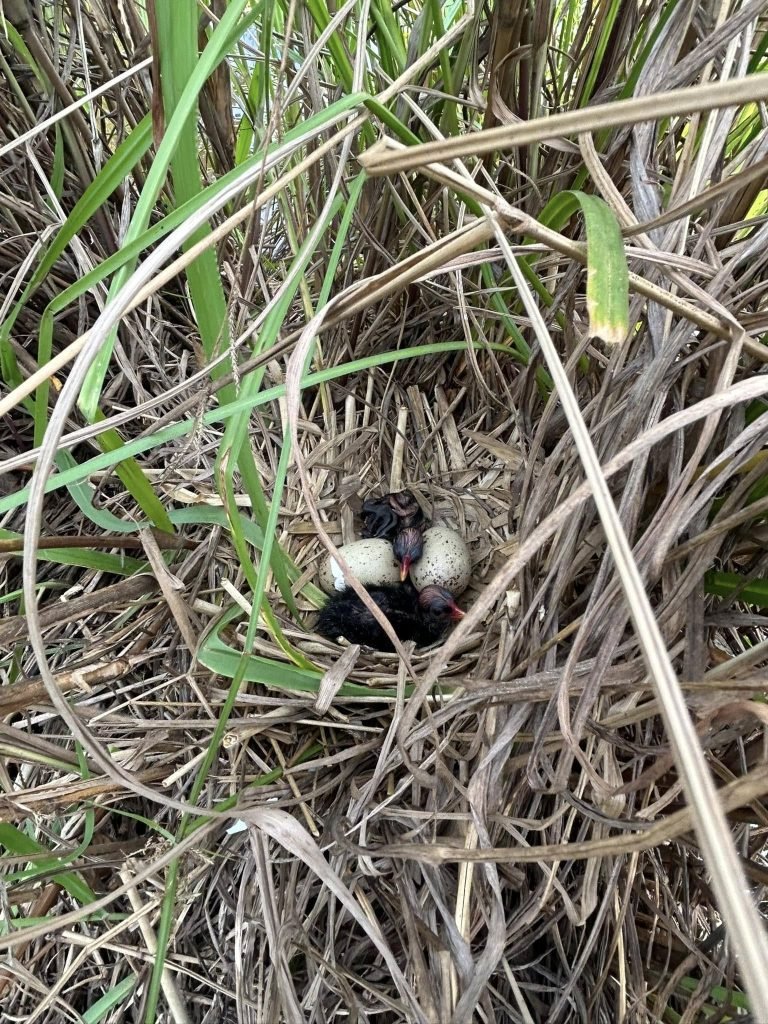
“Even though these cuts should save these government penges, every single refuge for wildlife will suffer and go behind,” Webber said. “I think this costs the government.”
Kaua’i also risks losing its natural wetlands.
Without being constantly maintained and removing invasive grass, the habitats will be gone. Minamishin led this effort.
He was Americorp’s trainee at the complex for two years before he was hired as Facility Manager by 2020. Last January, he got the promotion of maintenance management.
Born and raised at O’Ahu, Minamishin was drawn to Kaua’i because his grandmother was from Garden Island.
At the top of wetland maintenance, Minamishin said he was security tasks that ensured that the complex was complied with by the guidelines of the working environment and health management.
In Hanalei, Minamishin ensured that water from drainage ditches flowed properly to the Taro stains and continued invasive grass in check. He was also the construction manager for a number of projects on Refugees, including the predator fence at Kīlauea Point.
Minamishin was responsible for securing the complex facilities – kitchens, bathrooms and other buildings – were clean and operated correctly. Between all three refugees, Minamishin is responsible for clearing invasive species and maintaining predator fences in Kīlauea.
Minamishin was moving office printers from Kīlauea to Hanalei when he heard about the redundancies.
“I was in completely shock,” he said. “I didn’t think it used me because of my years of service.”
For anyone who works at Refuge Complex, Minamishin said, they all have a like -minded passion: “It’s Aloha ‘Aina, a deep -seeded administration for the Earth. It’s a lifestyle. “
Minamishin said that losing his job “felt like an attack” and he has not yet heard how he will be compensated.
But the biggest flap in his face for him was told he was released because of poor results, although he said he always has an average of a high performance review with his superiors.
“It cuts deeply when you see something similar,” he said. “It eats away on you a little.”
Minamishin’s immediate goal is to share his knowledge with the remaining staff. With so much land to take care of, he said it can quickly get out of control and wildlife will be lost.
“We are this huge family and we have this ordinary enemy,” Minamishin said of the Trump administration. “It’s an attack on my life, my future and what I believe in.”
